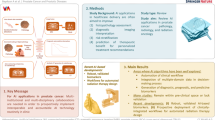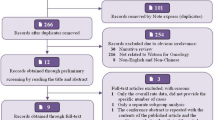Abstract
Purpose
Urological oncologists have difficulty providing optimal personalized care due to rapid alterations in scientific research results, medical advancements, and treatment guidelines. IBM’s Watson for Oncology (WFO) is an artificial intelligence clinical decision-support system that assists oncologists with evidence-based treatment recommendations. In the present study, we examined the level of concordance between the treatment recommendations for prostate cancer according to WFO and the actual treatments that the patients received in the department of urology.
Methods
We enrolled 201 patients who received prostate cancer treatment between January 2018 and June 2018. WFO provided treatment recommendations using clinical data in three categories: recommended, for consideration, and not recommended. These were compared with the actual treatments received by patients. Prostate cancer treatments were considered concordant if the received treatments were included in the “recommended” or “for consideration” categories by WFO.
Results
The patients’ mean age was 71.2 years. There were 60 (29.9%) and 114 (56.7%) patients with an Eastern Cooperative Oncology Group (ECOG) performance score ≥ 1 and non-organ confined disease (stage III/IV), respectively. The overall prostate cancer treatment concordance rate was 73.6% (“recommended”: 53.2%; “for consideration”: 20.4%). An ECOG performance score ≥ 1 and older age (≥ 75 years) were significantly associated with discordance (p = 0.001 and p = 0.026, respectively) on multivariate analysis.
Conclusion
In the present study, the treatment recommendations by WFO and the actual received treatments in the department of urology showed a relatively high concordance rate in prostate cancer patients.

Similar content being viewed by others
References
Mottet N, Bellmunt J, Bolla M, Briers E, Cumberbatch MG, De Santis M, Fossati N, Gross T, Henry AM, Joniau S, Lam TB, Mason MD, Matveev VB, Moldovan PC, van den Bergh RCN, Van den Broeck T, van der Poel HG, van der Kwast TH, Rouviere O, Schoots IG, Wiegel T, Cornford P (2017) EAU-ESTRO-SIOG guidelines on prostate cancer. Part 1: Screening, diagnosis, and local treatment with curative intent. Eur Urol 71(4):618–629. https://doi.org/10.1016/j.eururo.2016.08.003
Cornford P, Bellmunt J, Bolla M, Briers E, De Santis M, Gross T, Henry AM, Joniau S, Lam TB, Mason MD, van der Poel HG, van der Kwast TH, Rouviere O, Wiegel T, Mottet N (2017) EAU-ESTRO-SIOG guidelines on prostate cancer. Part II: Treatment of relapsing, metastatic, and castration-resistant prostate cancer. Eur Urol 71(4):630–642. https://doi.org/10.1016/j.eururo.2016.08.002
Shanafelt TD, Gradishar WJ, Kosty M, Satele D, Chew H, Horn L, Clark B, Hanley AE, Chu Q, Pippen J, Sloan J, Raymond M (2014) Burnout and career satisfaction among US oncologists. J Clin Oncol 32(7):678–686. https://doi.org/10.1200/JCO.2013.51.8480
Fleissig A, Jenkins V, Catt S, Fallowfield L (2006) Multidisciplinary teams in cancer care: are they effective in the UK? Lancet Oncol 7(11):935–943. https://doi.org/10.1016/S1470-2045(06)70940-8
Ung KA, Campbell BA, Duplan D, Ball D, David S (2016) Impact of the lung oncology multidisciplinary team meetings on the management of patients with cancer. Asia Pac J Clin Oncol 12(2):e298–304. https://doi.org/10.1111/ajco.12192
Duda RO, Shortliffe EH (1983) Expert systems research. Science 220(4594):261–268. https://doi.org/10.1126/science.6340198
Somashekhar SP, Sepulveda MJ, Puglielli S, Norden AD, Shortliffe EH, Rohit Kumar C, Rauthan A, Arun Kumar N, Patil P, Rhee K, Ramya Y (2018) Watson for Oncology and breast cancer treatment recommendations: agreement with an expert multidisciplinary tumor board. Ann Oncol 29(2):418–423. https://doi.org/10.1093/annonc/mdx781
Lee WS, Ahn SM, Chung JW, Kim KO, Kwon KA, Kim Y, Sym S, Shin D, Park I, Lee U, Baek JH (2018) Assessing concordance with watson for oncology, a cognitive computing decision support system for colon cancer treatment in Korea. JCO Clin Cancer Inform 2:1–8. https://doi.org/10.1200/CCI.17.00109
Kim M, Kim BH, Kim JM, Kim EH, Kim K, Pak K, Jeon YK, Kim SS, Park H, Kang T, Lee BJ, Kim IJ (2019) Concordance in postsurgical radioactive iodine therapy recommendations between Watson for Oncology and clinical practice in patients with differentiated thyroid carcinoma. Cancer 125(16):2803–2809. https://doi.org/10.1002/cncr.32166
Choi YI, Chung JW, Kim KO, Kwon KA, Kim YJ, Park DK, Ahn SM, Park SH, Sym SJ, Shin DB, Kim YS, Sung KH, Baek JH, Lee U (2019) Concordance rate between clinicians and watson for oncology among patients with advanced gastric cancer: early, real-world experience in Korea. Can J Gastroenterol Hepatol 2019:8072928. https://doi.org/10.1155/2019/8072928
Megerian (2018) Watson for Oncology FAQ. https://developer.ibm.com/watsonhealth/docs/watson-for-oncology/watson-oncology-faq/#evidence
Edge SB, Compton CC (2010) The American Joint Committee on Cancer: the 7th edition of the AJCC cancer staging manual and the future of TNM. Ann Surg Oncol 17(6):1471–1474. https://doi.org/10.1245/s10434-010-0985-4
Vinod SK, Sidhom MA, Delaney GP (2010) Do multidisciplinary meetings follow guideline-based care? J Oncol Pract 6(6):276–281. https://doi.org/10.1200/JOP.2010.000019
Palmer G, Martling A, Cedermark B, Holm T (2011) Preoperative tumour staging with multidisciplinary team assessment improves the outcome in locally advanced primary rectal cancer. Colorectal Dis 13(12):1361–1369. https://doi.org/10.1111/j.1463-1318.2010.02460.x
Gabel M, Hilton NE, Nathanson SD (1997) Multidisciplinary breast cancer clinics. Do they work? Cancer 79(12):2380–2384
Parker C, Gillessen S, Heidenreich A, Horwich A, Committee EG (2015) Cancer of the prostate: ESMO Clinical Practice Guidelines for diagnosis, treatment and follow-up. Ann Oncol 26(Suppl 5):v69–77. https://doi.org/10.1093/annonc/mdv222
Mayo RM, Summey JF, Williams JE, Spence RA, Kim S, Jagsi R (2017) Qualitative study of oncologists' views on the CancerLinQ rapid learning system. J Oncol Pract 13(3):e176–e184. https://doi.org/10.1200/JOP.2016.016816
Seroussi B, Bouaud J (2003) Using OncoDoc as a computer-based eligibility screening system to improve accrual onto breast cancer clinical trials. Artif Intell Med 29(1–2):153–167. https://doi.org/10.1016/s0933-3657(03)00040-x
Bouchardy C, Rapiti E, Fioretta G, Laissue P, Neyroud-Caspar I, Schafer P, Kurtz J, Sappino AP, Vlastos G (2003) Undertreatment strongly decreases prognosis of breast cancer in elderly women. J Clin Oncol 21(19):3580–3587. https://doi.org/10.1200/JCO.2003.02.046
Schonberg MA, Marcantonio ER, Li D, Silliman RA, Ngo L, McCarthy EP (2010) Breast cancer among the oldest old: tumor characteristics, treatment choices, and survival. J Clin Oncol 28(12):2038–2045. https://doi.org/10.1200/JCO.2009.25.9796
Audisio RA, Papamichael D (2012) Treatment of colorectal cancer in older patients. Nat Rev Gastroenterol Hepatol 9(12):716–725. https://doi.org/10.1038/nrgastro.2012.196
Bouchardy C, Rapiti E, Blagojevic S, Vlastos AT, Vlastos G (2007) Older female cancer patients: importance, causes, and consequences of undertreatment. J Clin Oncol 25(14):1858–1869. https://doi.org/10.1200/JCO.2006.10.4208
Boyle HJ, Alibhai S, Decoster L, Efstathiou E, Fizazi K, Mottet N, Oudard S, Payne H, Prentice M, Puts M, Aapro M, Droz JP (2019) Updated recommendations of the International Society of Geriatric Oncology on prostate cancer management in older patients. Eur J Cancer 116:116–136. https://doi.org/10.1016/j.ejca.2019.04.031
Kim SP, Gross CP, Nguyen PL, Smaldone MC, Thompson RH, Shah ND, Kutikov A, Han LC, Karnes RJ, Ziegenfuss JY, Tilburt JC (2014) Specialty bias in treatment recommendations and quality of life among radiation oncologists and urologists for localized prostate cancer. Prostate Cancer Prostatic Dis 17(2):163–169. https://doi.org/10.1038/pcan.2014.3
Funding
This study was supported by a Grant (HCRI18015-1) Chonnam National University Hwasun Hospital Institute for Biomedical Science.
Author information
Authors and Affiliations
Contributions
SHY contributed to data collection, manuscript writing/editing. MSK contributed to project development, data collection, data analysis. CHS contributed to project development, data collection, data analysis, manuscript editing. ECH contributed data analysis. SIJ contributed to project development. TWK contributed to project development. DK contributed to project development.
Corresponding author
Ethics declarations
Conflict of interest
The authors declare that they have no conflicts of interest.
Ethical approval
The study protocol was reviewed and approved by the institutional review board (IRB) of the Chonnam National University Hwasun Hospital (IRB approval no.: CNUHH-2018-112). In addition, the study was performed in accordance with the Declaration of Helsinki and the Ethical Guidelines for Clinical Studies.
Informed consent
For this type of study, formal consent is not required.
Additional information
Publisher's Note
Springer Nature remains neutral with regard to jurisdictional claims in published maps and institutional affiliations.
Electronic supplementary material
Below is the link to the electronic supplementary material.
Rights and permissions
About this article
Cite this article
Yu, S.H., Kim, M.S., Chung, H.S. et al. Early experience with Watson for Oncology: a clinical decision-support system for prostate cancer treatment recommendations. World J Urol 39, 407–413 (2021). https://doi.org/10.1007/s00345-020-03214-y
Received:
Accepted:
Published:
Issue Date:
DOI: https://doi.org/10.1007/s00345-020-03214-y




